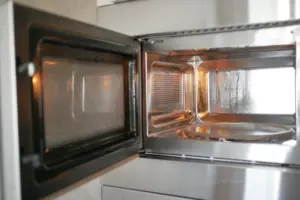Freezing meat is one of the best ways to preserve it long-term, allowing you to stock up on essentials without worrying about spoilage. However, even in the freezer, meat does have a “shelf life” in terms of quality and safety. This guide will explain how long is meat good in freezer and provides tips for best practices in freezing and storage, and signs that frozen meat may no longer be safe or appetizing to eat.
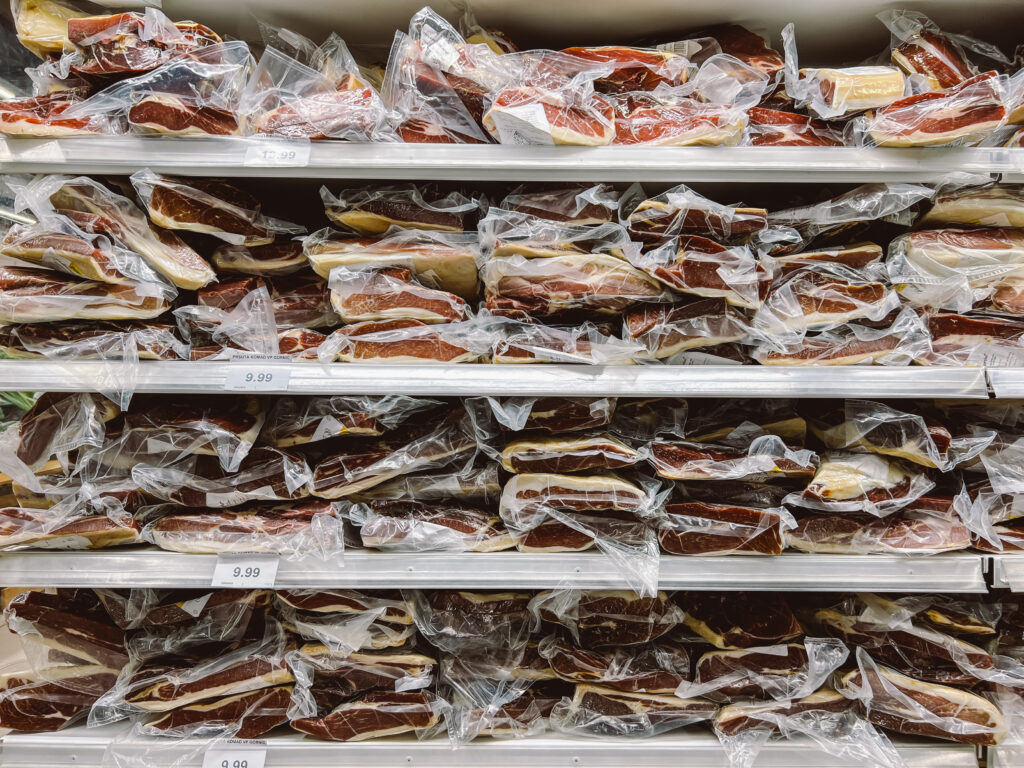
Freezing Basics: Why and How Freezing Preserves Meat
Freezing works by slowing down the growth of bacteria and mold, which causes spoilage in fresh meat. It also delays the deterioration of texture, taste, and appearance, keeping meat fresher longer. However, over time, the quality of frozen meat can still degrade, as freezer burn, oxidation, and textural changes gradually impact its flavor and tenderness. Freezing food at 0°F (-18°C) or below is essential, as this is the temperature recommended by the FDA to maintain the safety of frozen meats.
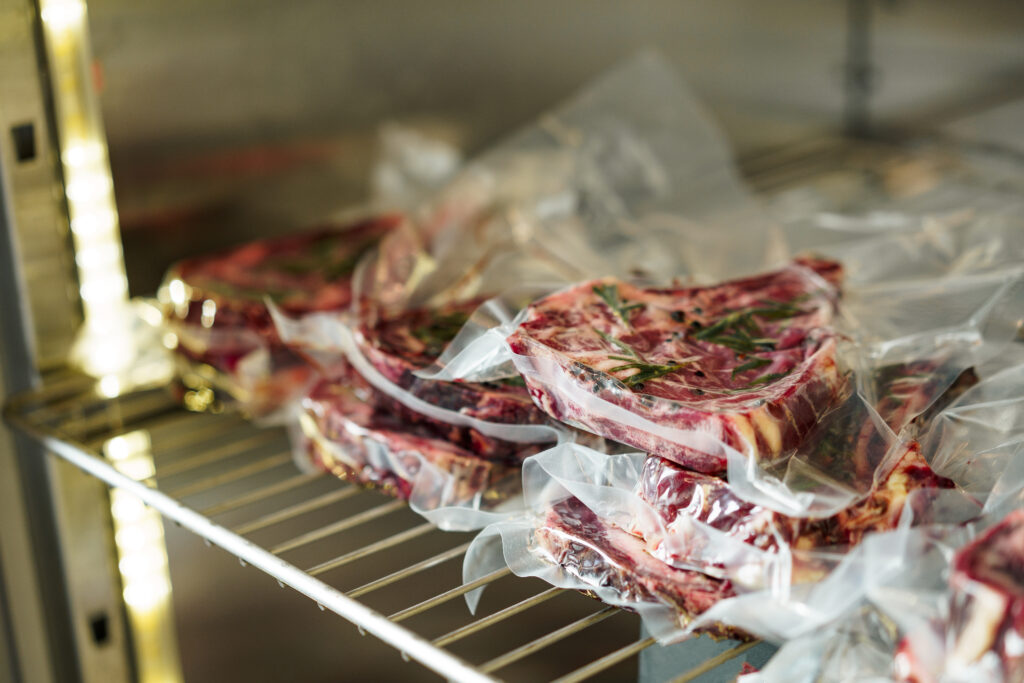
How Long Different Meats Stay Good in the Freezer
Different types of meat maintain their quality for varying lengths of time in the freezer. Here’s a breakdown of recommended freezer times for different types of meat:
1. Beef (Steaks, Roasts, and Ground Beef)
- Steaks and Roasts: Beef steaks and roasts are among the most freezer-stable meats, lasting up to 12 months when stored properly. Over this time, their flavor and texture generally remain good.
- Ground Beef: Due to its higher surface area and processing, ground beef is best used within 3-4 months. While it remains safe for longer, the quality may decline past this period.
2. Pork (Chops, Roasts, and Ground Pork)
- Chops and Roasts: Pork chops and roasts can last in the freezer for 4-6 months. Pork, in general, has a slightly shorter freezer life than beef but retains its quality well within this period.
- Ground Pork: Similar to ground beef, ground pork is best used within 3-4 months to enjoy optimal flavor and texture.
3. Poultry (Chicken and Turkey)
- Whole Chicken or Turkey: Poultry freezes well, with whole chickens and turkeys able to last up to 12 months in the freezer without significant quality loss.
- Chicken and Turkey Parts: Chicken breasts, thighs, and wings are best used within 9 months, as the cuts have a slightly higher susceptibility to freezer burn due to less protection from skin or bones.
- Ground Poultry: Ground chicken and turkey are best used within 3-4 months, similar to other ground meats.
4. Lamb and Veal
- Lamb and Veal Cuts: Cuts like lamb chops or veal roasts are generally good in the freezer for 6-9 months. Due to their lower fat content, these meats freeze well but can become dry if frozen too long.
5. Seafood (Fish and Shellfish)
- Fatty Fish (Salmon, Tuna): Fatty fish can be frozen for up to 2-3 months but lose quality beyond this point as oils begin to deteriorate, impacting flavor and texture.
- Lean Fish (Cod, Haddock): Lean fish can last 6-8 months in the freezer without significant quality loss.
- Shellfish (Shrimp, Scallops, and Lobster): Shellfish should ideally be used within 3-6 months.
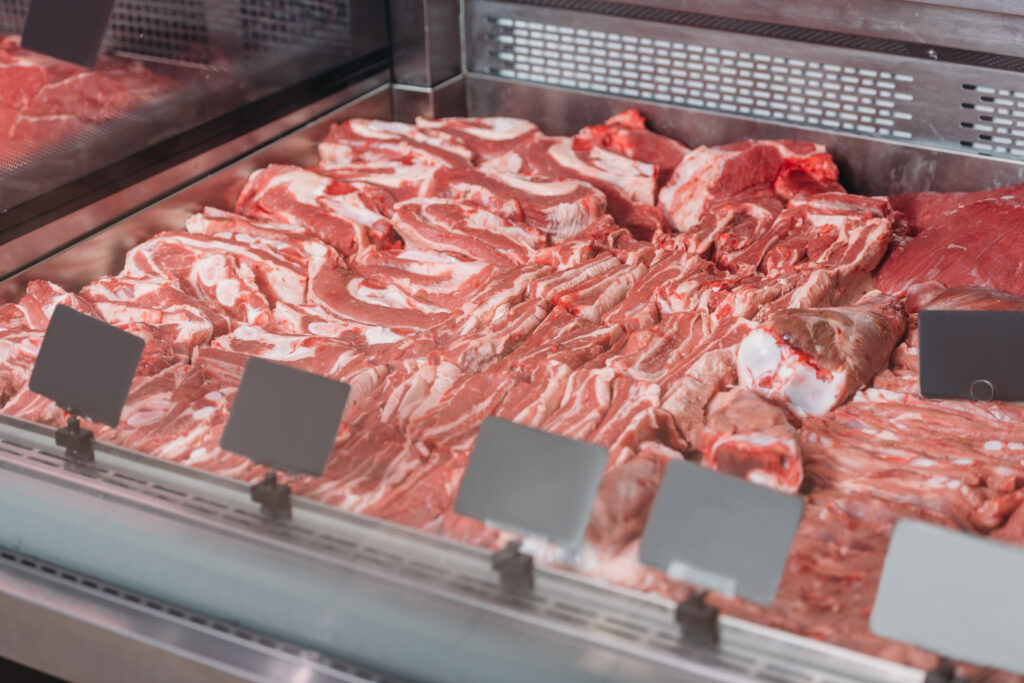
Freezer Storage Tips for Optimal Meat Quality
- Wrap Meat Properly: To prevent freezer burn, wrap meat tightly in plastic wrap, followed by a layer of aluminum foil, or use vacuum-sealed bags. Proper packaging helps lock in moisture and prevents air from drying out the meat.
- Use Freezer-Safe Containers: If freezing meat in bulk, freezer-safe containers or heavy-duty freezer bags are ideal. This minimizes the risk of punctures and keeps meat free from contaminants.
- Label and Date: Always label and date packages before placing them in the freezer. This helps track how long each item has been frozen and ensures you use it within the optimal time frame.
- Organize by Expiration: To prevent older packages from being pushed to the back and forgotten, store meats you plan to use sooner at the front of the freezer. This encourages you to rotate through items and minimizes waste.
- Defrost Carefully: When ready to use, defrost meat in the refrigerator rather than at room temperature to minimize bacterial growth. Larger items like whole turkeys can take days to thaw safely, so plan accordingly.
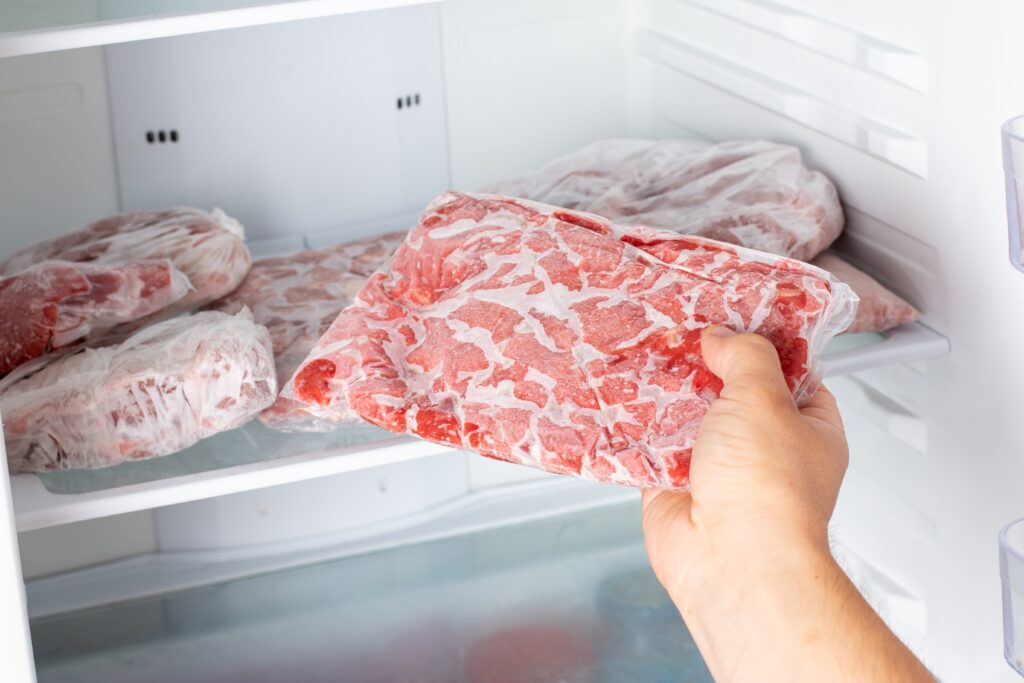
Signs Meat May Have Lost Quality in the Freezer
While frozen meat can remain safe to eat indefinitely if stored at the proper temperature, its quality doesn’t last forever. Here are some signs that frozen meat may have degraded in quality:
- Freezer Burn: White, dried-out spots on the meat’s surface indicate freezer burn. Though safe to eat, freezer-burned meat may taste dry and have a less appealing texture.
- Color Changes: Meat that appears gray, brown, or discolored may still be safe, but these changes indicate quality loss. Fish and poultry, in particular, can lose color when frozen too long.
- Strange Odors: If the meat has a sour or off smell after thawing, it may have spoiled. While rare in frozen items, it’s a sign the meat should not be consumed.
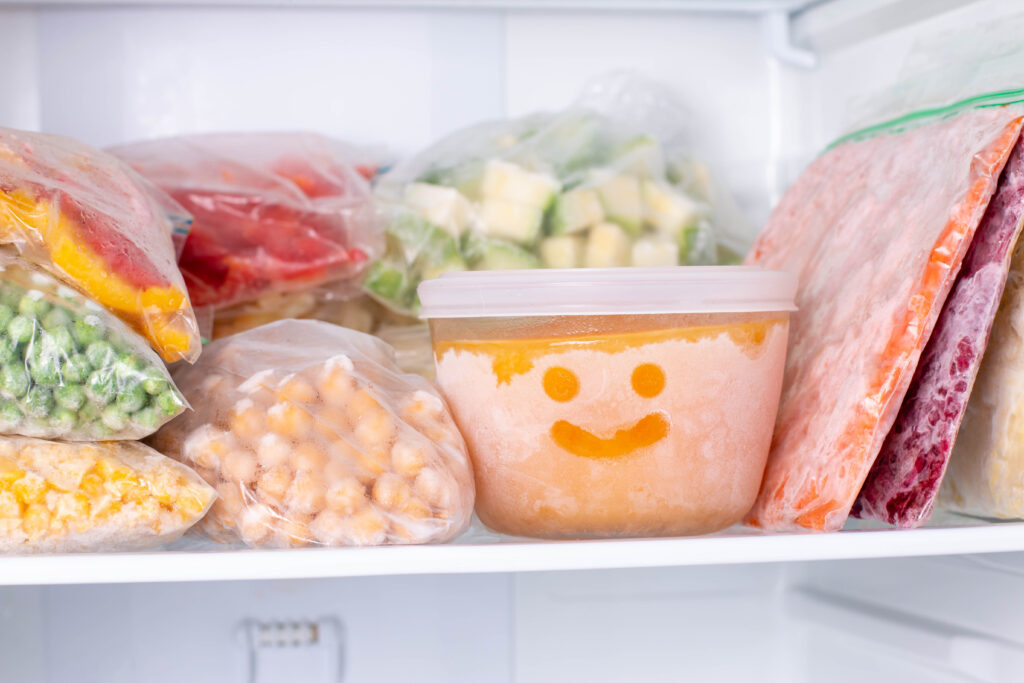
How Long Meat Stays Safe in the Freezer
While quality degrades over time, meat can stay safe in the freezer indefinitely if stored below 0°F. This means that, technically, you can keep meat in the freezer beyond the recommended periods above. However, the flavor, texture, and moisture will significantly decline, and you may not enjoy the meat as much as fresher cuts.
Common Questions About Freezing Meat
- Can You Refreeze Meat After Thawing?
You can refreeze meat if it was thawed in the refrigerator and kept at a safe temperature. However, refreezing may affect texture and moisture, particularly in delicate meats like fish. - Does Freezing Kill Bacteria?
Freezing does not kill bacteria; it merely halts their growth. This is why safe handling before freezing and proper thawing practices are essential. - What’s the Best Freezer Temperature for Meat?
Keeping your freezer at 0°F (-18°C) is recommended for optimal food safety and quality. Using a freezer thermometer can help ensure the appliance maintains this temperature consistently.
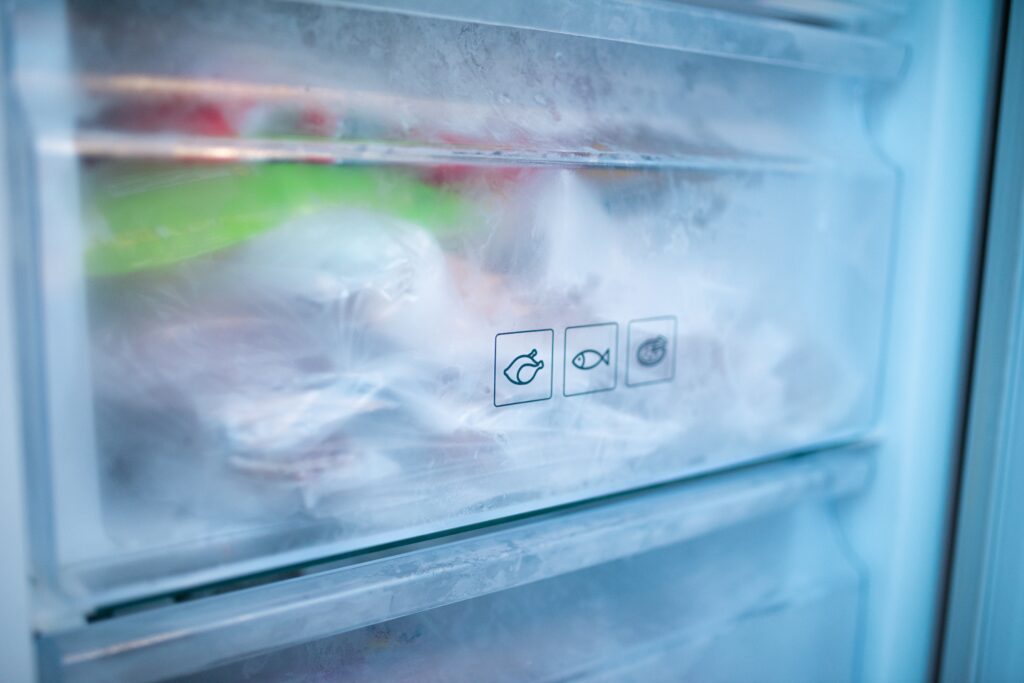
Conclusion: Trust My Appliance Guy for Freezer and Appliance Guidance
Properly freezing meat is an essential skill in today’s kitchen, helping you save money, reduce waste, and maintain a well-stocked supply. By following the guidelines above, you can make sure your meat stays safe and tasty for as long as possible. At My Appliance Guy, we know that getting the most from your freezer requires not only knowledge but also the right appliances. If you’re looking for a reliable freezer or need maintenance on your current appliance, My Appliance Guy is here to help. Reach out to us for appliance solutions that make everyday life easier, more efficient, and enjoyable!


